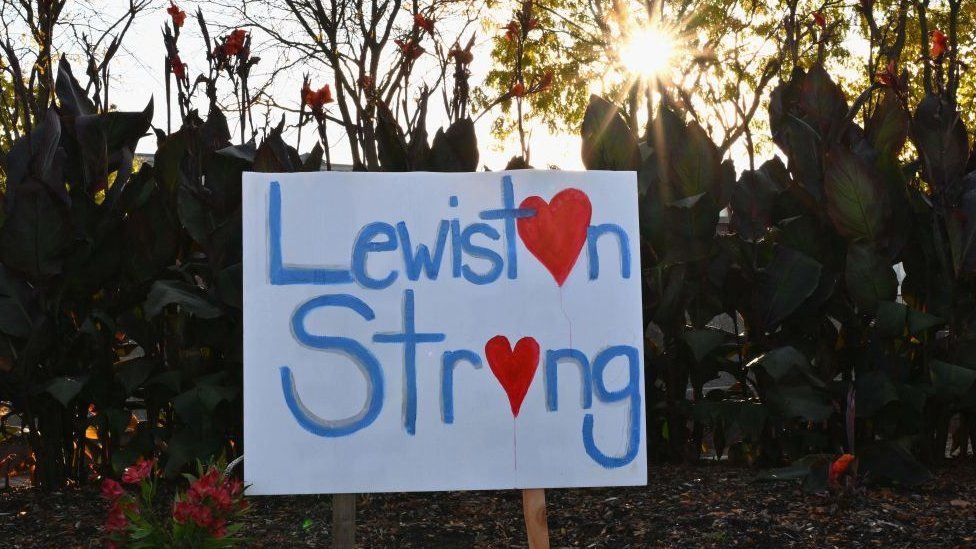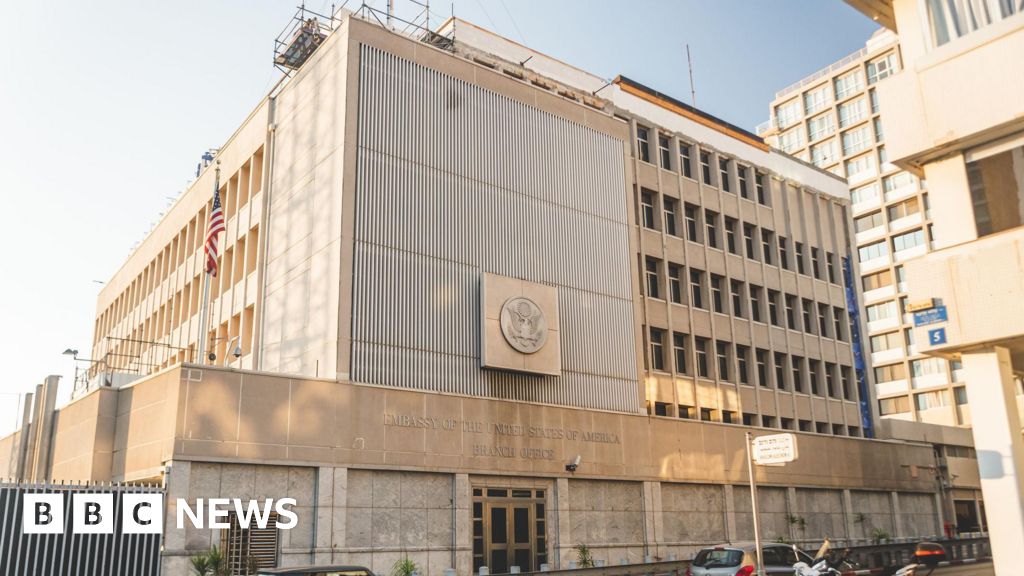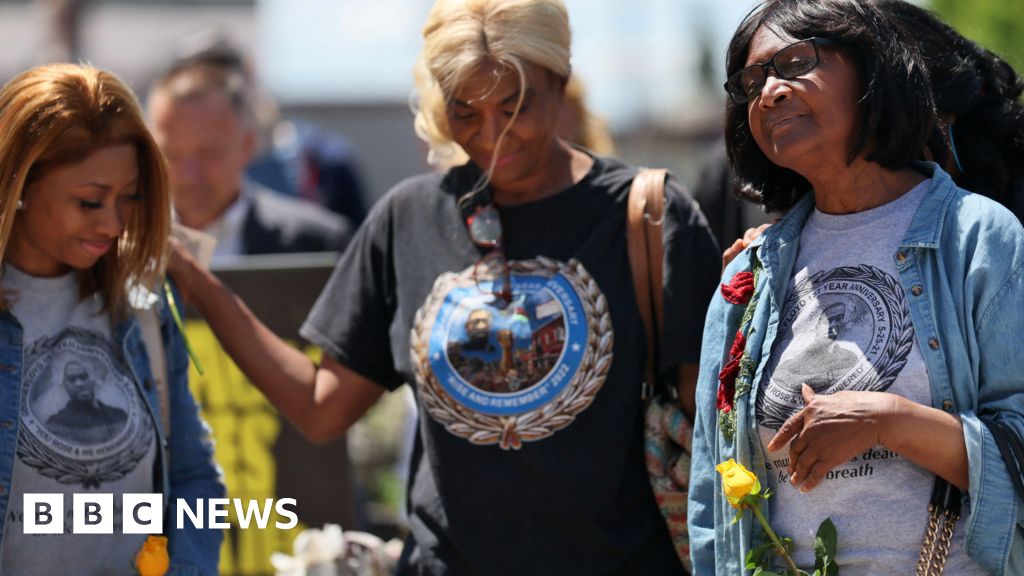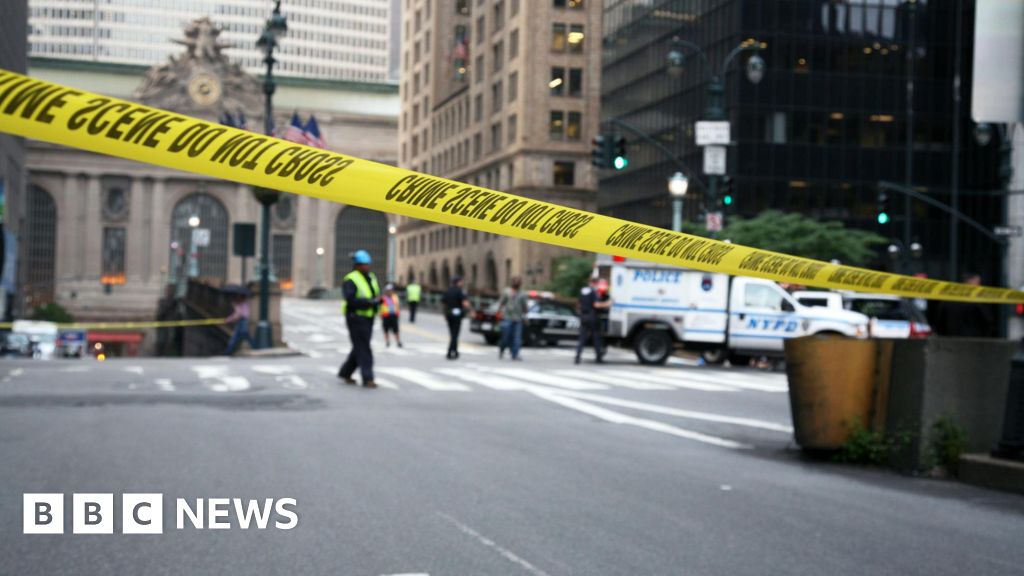ARTICLE AD BOX
 Image source, Getty Images
Image source, Getty Images
The shooting in Lewiston nearly matched Maine's homicide total for 2022
By Bernd Debusmann Jr
BBC News, Washington
US President Joe Biden has arrived in Maine to meet with families and first responders a week after a devastating mass shooting left 18 dead.
The 25 October attack at a bowling alley and bar in the town of Lewiston was the deadliest shooting in Maine's history.
Another 13 people were injured in the incident.
After the shooting, Mr Biden repeated previous calls for a ban on assault weapons and tougher gun control.
In a statement, Stefanie Feldman, the director of the White House Office of Gun Violence Prevention, said that "recovering from this attack will be long and difficult".
"President Biden is committed to marshalling resources from across the federal government to support Lewiston every step of the way," Ms Feldman added.
The shooting, carried out by a 40-year-old man with a history of mental illness, shattered the otherwise sleepy and idyllic town of Lewiston.
It began at Just-In-Time Recreation, which hosts youth and adult bowling leagues, before the gunmen went to the nearby Schemengees Bar & Grille, which was hosting a cornhole tournament at the time.
A grandfather, a talented young bowler and four members of a deaf cornhole team were among the dead.
Sean Gosselin, a local resident, told the BBC that while the experience has been "difficult, the town is slowly returning to a sense of normalcy and coping as best it can".
On Thursday, for example, Mr Gosselin said that many townspeople gathered to watch the local high school's football team - the Lewiston Blue Devils - play their rivals from the nearby town of Auburn.
"That's kind of a signature of our community, coming together....it was really cool, and a little bit emotional," he said. "It's symbolic of resilience, of persevering and moving on, but without a lack of recognition for victims of this horrible crime".
The shooting - the worst in the US so far this year - nearly matched Maine's homicide total for 2022. The perpetrator, Robert Card, was found dead of a self-inflicted gunshot wound days after the murders.
In a statement made the day after the shooting, Mr Biden called on Republican lawmakers to pass a bill banning assault weapons and high-capacity magazines and to enact universal background checks and "end immunity from liability for gun manufacturers".
"This is the very least we owe every American who will now bear the scars — physical and mental — of this latest attack," he said.
Officials in Maine have struggled to explain how the shooter was able to legally obtain weapons despite warnings from his Army Reserve unit that he was facing mental health issues.
In July, the Army went as far as to say that he "should not have a weapon, handle ammunition, and not participate in live fire activity".
Two months later, authorities twice checked on him after a fellow soldier became concerned that would "snap" and commit a mass shooting. Soon after, an alert was sent to law enforcement.
As early as May, family members had also warned authorities that he was behaving erratically, had become paranoid and was potentially dangerous.
A search for Card was launched in September after sheriff's deputies were unable to find him after repeated visits. That search was cancelled on 18 October, about a week before the shooting.
Maine's Democratic Governor, Janet Mills, said that she was thankful for Mr Biden's "unwavering support" for the state in the aftermath of the shooting.
"By visiting us in our time of need, the President and First Lady are making clear that the entire nation stands with Lewiston and with Maine - and for that I am profoundly grateful," she said in a statement.
Watch: Families in Lewiston work to return to 'normal' in the wake of mass shooting

 1 year ago
28
1 year ago
28








 English (US) ·
English (US) ·